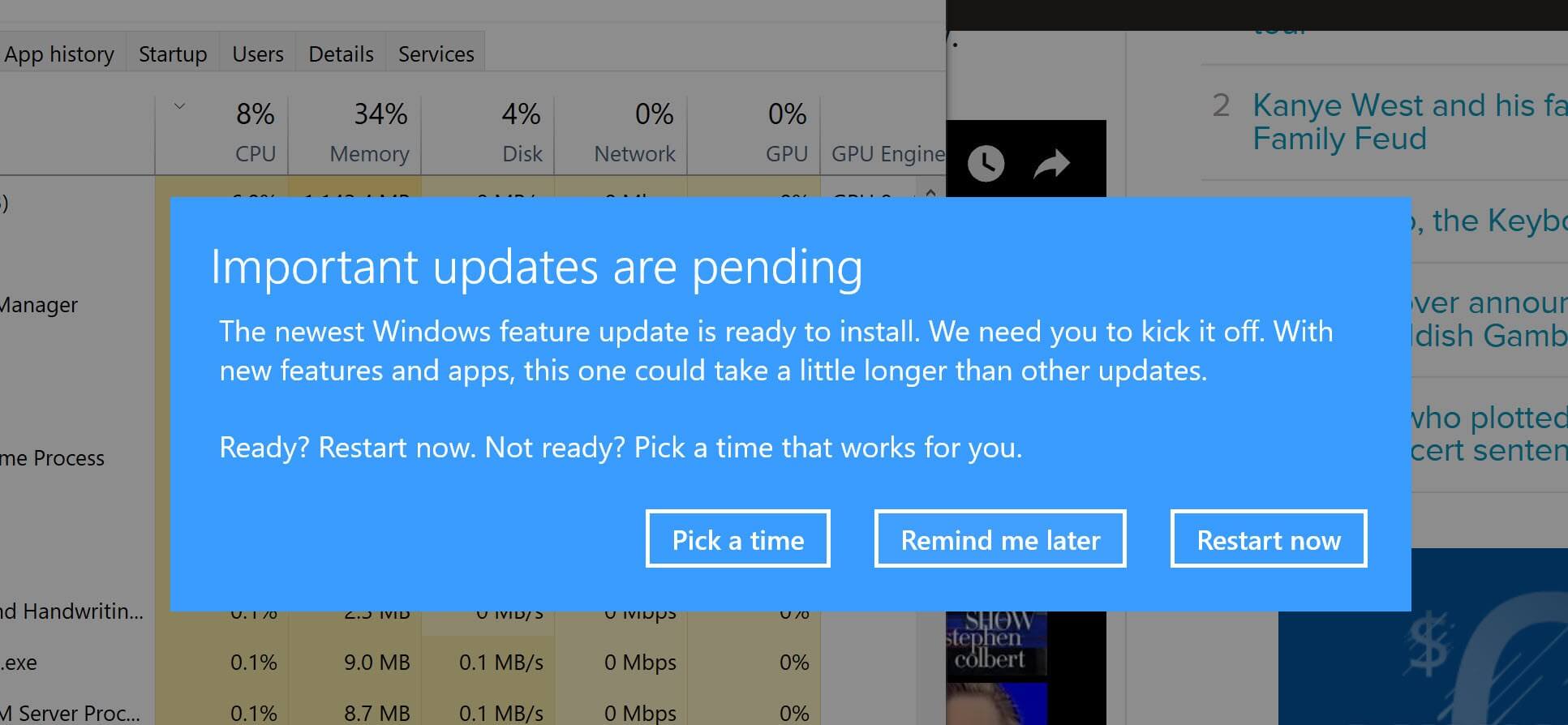Forward-looking: What if Windows could update without interrupting you with the option to restart your computer now or remind you in 10 minutes? According to Microsoft, its vision is to bring that and more to a modern, secure, and connected operating system.
On Tuesday, Microsoft's keynote at Computex revealed how the company is looking to adapt to new types of devices. As the industry continues to innovate with variants on the traditional PC and laptop such as Intel's dual-screen gaming laptop, Microsoft is hoping to adapt to accommodate and evolve with manufacturers.
"These new modern PCs and innovative devices the ecosystem will continue to build and bring to market in the future require a modern operating system," Corporate Vice President of Consumer and Device Sales Nick Parker summarized.
He did not say whether this "modern" operating system would be Windows proper, or an offshoot product. Parker did mention that it would have seamless updating. Microsoft would like its OS to update in a way that does not impede the user, something that it has never been able to pull off.
"With a modern OS, updates are invisibly done in the background; the update experience is deterministic, reliable, and instant with no interruptions!" Parker said.
The seamless updates that Parker describes are a far cry from what Windows offers now and in the past, which sometimes require multiple reboots and usually has users putting off updates until the end of the day due to the downtime.

It also sounds like Microsoft wants to take security in another direction by separating states from the OS.
"A modern OS, is also secure by default," said the CVP. "The state is separated from the operating system; compute is separated from applications; this protects the user from malicious attacks throughout the device lifecycle."
The new OS will always be connected, whether through WiFi, LTE, or 5G. All of a user's devices will be aware of each other and will be connected to one another. So it almost sounds like what Microsoft is shooting for is a cloud-based system similar to Chrome OS, but using its own Azure IoT platform.
" A modern OS does this by enabling cloud-connected experiences that use the compute power of the cloud to enhance users experiences on their devices," Parker continues. "These experiences are powered by AI, so a modern OS is aware of what a user is doing tomorrow and helps them get it done, and it enhances applications making them more intelligent."
Parker's tone and some of the concepts he outlines sound like down-the-road visions. He did not indicate any specific timelines. The next major Windows update (19H2) is supposed to be here in October. Microsoft also said there is another iteration that is in testing right now for a 2020 release (20H1).
Will any of Microsoft's visions for modern OS appear in either of those? We'll have to wait and see, but if it wants to start taking advantage of the alternative configurations and secondary displays that are emerging, it better get on the ball.
